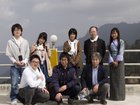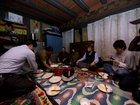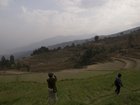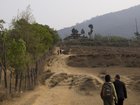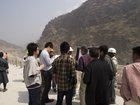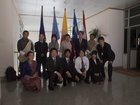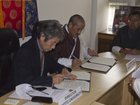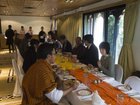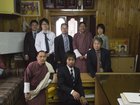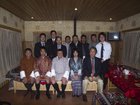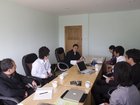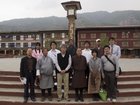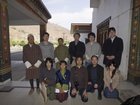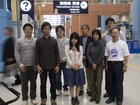8th Mission
Date
March 23, 2012 - March 31, 2012
Member
- Hiromu SHIMIZU Director, Center for Southeast Asian Studies, Kyoto University
- Deqiang LIU Professor, Graduate School of Economics and Faculty of Economics, Kyoto University
- Ryota SAKAMOTOProject Researcher, Research Institute for Humanity and Nature, Kyoto University
- Katsue FUKAMACHIAssociate Professor, Graduate School of Global Environmental Studies, Kyoto University
- Tetsuhiro KikuchiProgram-Specific researcher, Institute for Frontier Medical Sciences, Kyoto University
- Mie KANAMOTOGraduate student, Institute of Advanced Energy, Kyoto University
- Daichi KOZAWAGraduate student, Institute of Advanced Energy, Kyoto University
- Yuji Ogihara Graduate student, Graduate School of Education, Kyoto University
Schedule
- 03/23
- Kansai - Bangkok
- 03/24
- Bangkok - Paro - Dongkakha village
- 03/25
- Dongkakha village
- 03/26
- Dongkakha village - Thimphu
- 03/27
- Thimphu
- 03/28
- Thimphu
- 03/29
- Thimphu
- 03/30
- Thimphu - Paro - Bangkok
- 03/31
- Kansai
Report: Happiness and Globalization in Bhutan
Yuji Ogihara
I was very happy that I could visit Bhutan in March, 2012. With many memories of Bhutan, it is difficult to summarize everything. I research the effect of globalization on Japanese happiness and interpersonal relationships from the viewpoint of cultural psychology. I had decided to visit Bhutan since I was interested in why Bhutan was called “nation of happiness”. In this essay, I would like to comment on three points related to my topics.
First, I agree with the widely broadcasted opinion that Bhutan is a nation of happiness. During our stay, I often acknowledged that Bhutanese were really happy. They seem to feel less pressure or less anxiety in daily life. Most workers leave their workplace at around 5 p.m. and spend time with their families. When I asked a Bhutanese “When do you feel happy?”, he answered “It’s now. After I finished working, I can spend a precious time with you and eat delicious food”. In addition, Bhutanese citizens do not have to pay tuition and medical payment. They respect the King (There are many pictures of King and Queen all over the city). They believe the King will surely help them, if something happens to them. Furthermore, Bhutanese happiness is fundamentally based on the Tibetan Buddhism. Even if they cannot feel happy now, they believe that they will become happy in the next life. They seem to enjoy happiness in the present moment, rather than pursuing happiness at some future time.
Second, although Bhutan is well known as a nation of happiness, and the media often focus on positive aspects of Bhutan, there are some dark sides behind the light sides. For instance, in Thimphu (capital of Bhutan), jobs are lacking and infrastructure is not sufficiently maintained because a lot of people (especially young people) have drastically been migrating there in recent years. Rural areas experience difficulties because of such rapid social change, especially for elders who are carrying out an agricultural lifestyle.
Third, I was impressed to see the Bhutanese stand against globalization is innovative and unique. Bhutan selectively introduces globalization into society and people. The country is famous for GNH (Gross National Happiness) that contrasts with GNP (Gross National Product), which means Bhutan emphasizes the happiness of its citizenmore than economic development. It is true that Bhutan thinks economic development is necessary for Bhutanese happiness, but it pays more attention to GNH. It seems to me that Bhutan is going well now. However, globalization is rapidly progressing all over the world and Bhutan is not an exception. Now people in Bhutan can get information via TV or internet, and a lot of tourists from all over the world have visited Bhutan. The power of globalization will influence Bhutanese society and people. Therefore, we should keep track how Bhutan will be in future. I hope that Bhutan will keep on being the nation of happiness.
Finally, I would like to appreciate Bhutanese kindness. They generously let us stay in their homes, friendly talked to me in spite of my poor English, flexibly coordinated our plans, and so on. Moreover, I would like to say thank you to the 8th visiting members of Kyoto University. It was a wonderful opportunity to share ideas with people from different fields. Thanks to them, I was able to have great experiences in Bhutan.

